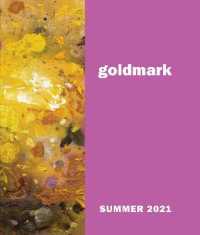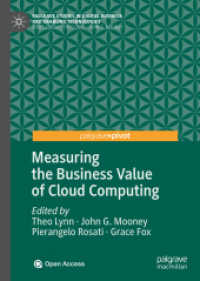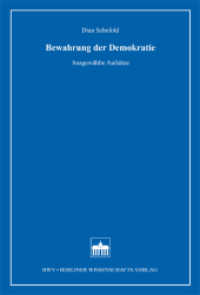Full Description
This book presents Chinese perspectives on methodologies for conducting ethnographic research in complex societies with long histories such as China. These perspectives also offer insights into overcoming ethnocentrism and promoting communication among multicultural subjects in the contemporary world. Secondly, the book examines the historical context of ethnological knowledge production in China, including academic debates during the early-twentieth-century movement for national liberation, as well as the multidimensional principles of methodology that were adopted in the study of ethnic minorities.
Contents
Chapter 1: The "Literature, History, Philosophy" Tradition as Anthropological Methodology.- Chapter 2: Intersubjective Hermeneutics of the Conjuncture of Multiple Ontologies.- Chapter 3: Practical Transcendence of the Divide Between Self and Other, and the Ethnographic Method of "Doing".- Chapter 4: The Rhetoric of Empiricism and the Imaginary Other in Rural China Studies.- Chapter 5: In-Depth Case Studies from the Perspective of Typological Comparison, and the Articulation of Chinese Experiences.- Chapter 6: The Awakening of Minzu Theory in the March Toward Sovereignty.- Chapter 7: Observing Narrators and Their Societies through the Lens of Historical Narratives.- Chapter 8: Cultural Self-Awareness, Targeted Poverty Alleviation, and the Disenchantment of Participatory Development Theory in Miao County, Guizhou.- Postscript: Addressing "the Aura of the Local" in Chinese Anthropology.








